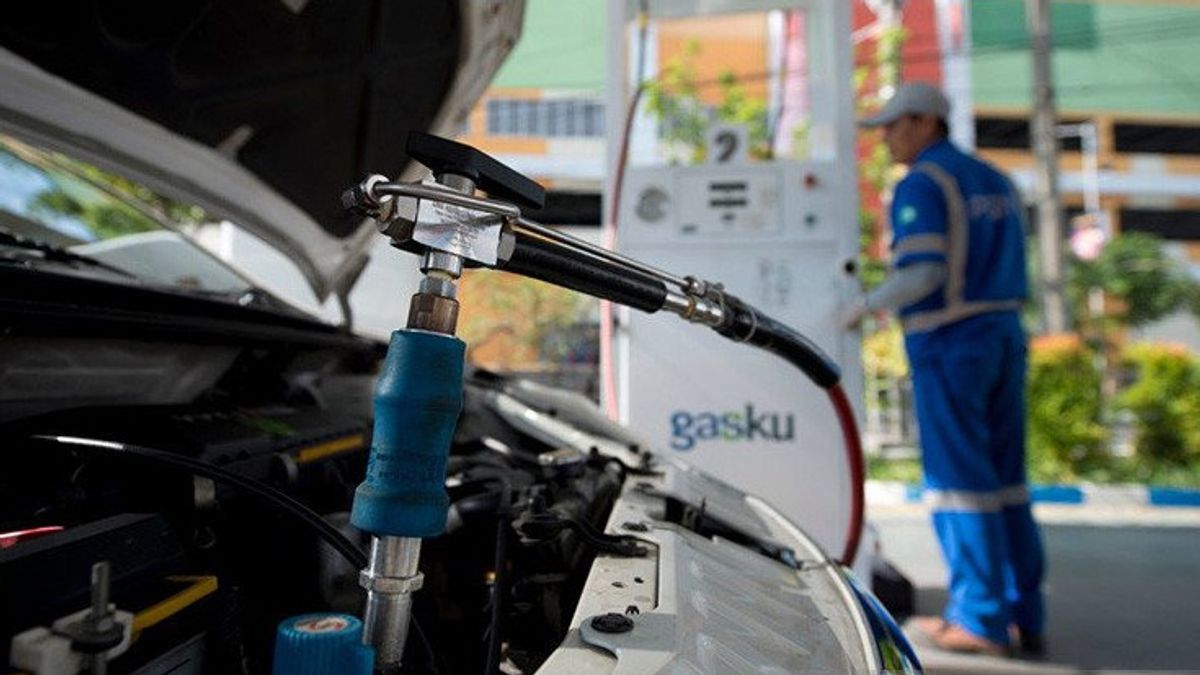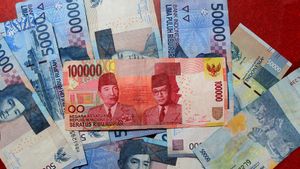JAKARTA - Pertamina continues to make energy transition commitments, including a program to diversify the use of fuel to gas in the transportation sector. Through one of its subsidiaries, Subholding Gas PT PGN Tbk., Pertamina officially operates SPBG Kaligawe, Semarang, Central Java. The SPBG has a capacity of 1 MMSCFD or the equivalent of 30,000 liters of premium per day (lsp).
The operation was inaugurated by the Director General of Oil and Gas at the Ministry of Energy and Mineral Resources, Tutuka Ariadji, accompanied by the Director of the Secretary of the City of Semarang, Iswar Aminuddin, the Director of Strategy, Portfolio and Business Development (SPPU) Pertamina Iman Rachman, and the President Director of PT PGN Tbk, M. Haryo Yunianto, Friday, August 20, 2020.
Director General of Oil and Gas ESDM Tutuka Ariadji said the operation of the Kaligawe SPBG would facilitate gas refueling for the Trans Semarang BRT. Besides being economical, CNG also encourages the realization of clean air.
"With the conversion of BBM to BBG, lower vehicle emissions will be obtained so that they are more environmentally friendly. The operation of the Kaligawe SPBG can encourage the people of Semarang to use environmentally friendly and economical CNG. For that, hopefully Pertamina Group can realize its plan to expand the use of the Kaligawe SPBG in a sustainable manner, " said Tutuka, in a written statement, Saturday, August 21.
The savings in the use of CNG can reach around 13 percent, assuming that the diesel needs for one bus unit are around 50 liters per day at a price of Rp. 5,150 per liter. If you use BBG the cost per lsp is IDR 4,500.
SPBG Kaligawe is part of the infrastructure built by the Ministry of Energy and Mineral Resources through APBN funds and is connected to the Subholding Gas distribution pipeline. For operations, it will use gas from WK Kangean and WK Muria.
Pertamina SPPU Director Iman Rachman explained that the Kaligawe SPBG is planned to supply 200 Trans Semarang buses with gas fuel belonging to the Semarang City Government. The average gas consumption for 200 buses is around 8,400 lsp. From the utilization of the Kaligawe SPBG with a capacity of 30,000 lsp, there are still around 21,600 lsp that can be used for 500 - 600 other vehicles.
"It is hoped that the Kaligawe SPBG will become one of the supply points for the supply of gas fuel in the Central Java region and ultimately be able to encourage the overall gas business in the region. Later this facility can also be optimized for Compressed Natural Gas (CNG) services in the commercial sector as one efforts to substitute LPG in stages," said Iman.
For Pertamina Group, he added, the operation of the SPBG, which is a form of synergy between Holding - Subholding and its affiliates, is a real step in the transformation that exists at Pertamina through the establishment of Gas Subholding.
PGN President Director, Haryo Yunianto added, PGN as Pertamina's Gas Subholding will add gas fuel supply points, especially in the transportation sector elsewhere, so that it can further facilitate public access.
"The location of the Kaligawe SPBG is quite strategic near the national road. So it is necessary to carry out a more detailed survey, especially capturing the potential demand for transportation outside the Trans Semarang bus, such as city transportation that passes Jalan Raya Kaligawe," said Haryo.
With the operation of the Kaligawe SPBG, it means increasing the number of CNG supply outlets in the conversion program in the transportation sector managed by the Pertamina Group. In the future, there will be an increase in the utilization of the Kaligawe SPBG in order to serve customers in the household sector and retail industry in the Semarang and surrounding areas.
SPBG Kaligawe is also a realization of the benefits of Jumperline Tambak Lorok to provide flexibility and reliability of natural gas distribution infrastructure in Central Java.
PGN is committed to increasing the use of natural gas through the development of a land transportation conversion program from BBM to BBG in a sustainable manner. The use of CNG for land transportation helps the government's target in the energy mix of the transportation sector and has a positive impact on the environment, in particular reducing carbon emissions.
The English, Chinese, Japanese, Arabic, and French versions are automatically generated by the AI. So there may still be inaccuracies in translating, please always see Indonesian as our main language. (system supported by DigitalSiber.id)









